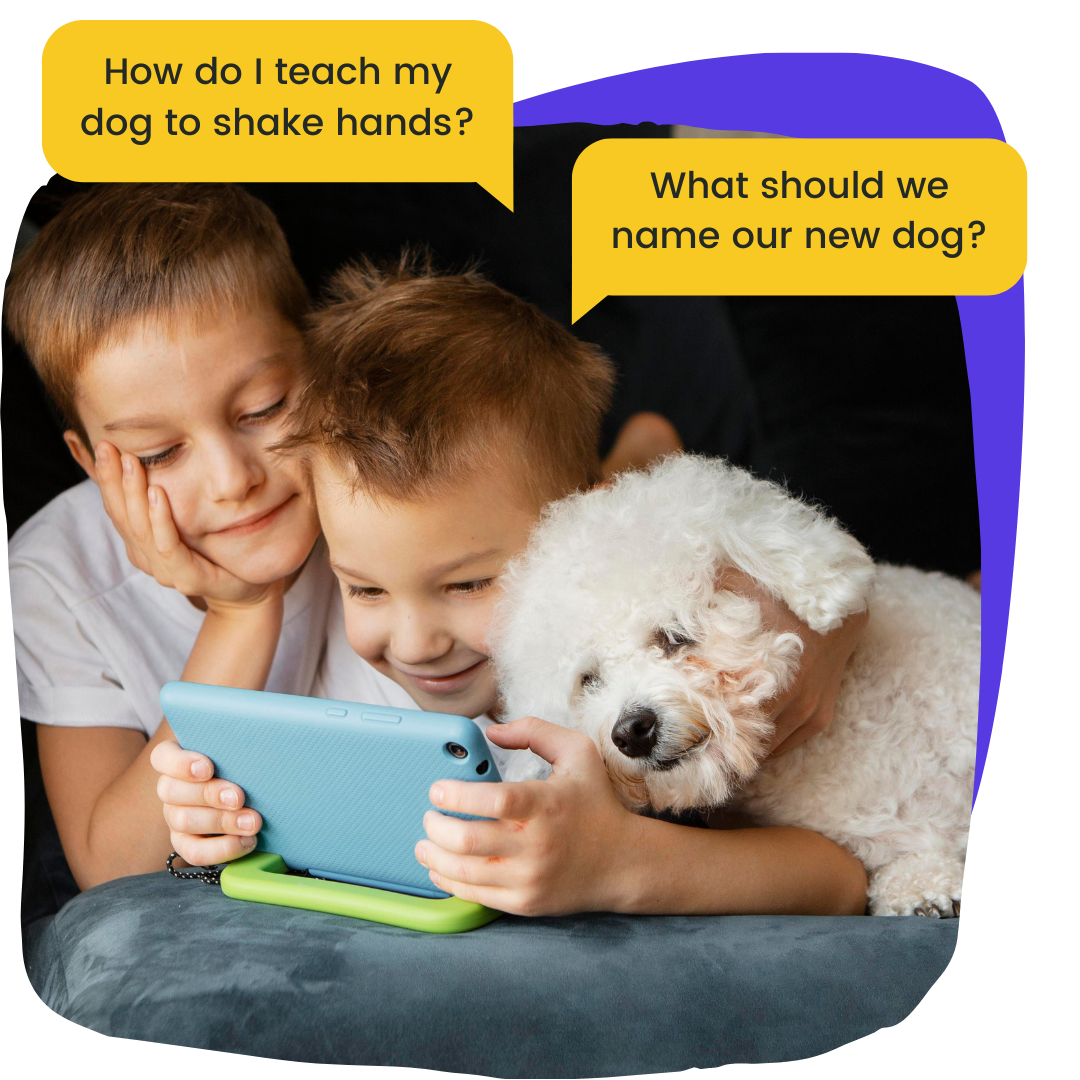


As founder of Pinwheel, I've spent years thinking about how technology impacts our children's development. When we began exploring AI for kids, one question kept coming up in our team discussions: What do children actually need from artificial intelligence?
In keeping with our mission to help kids learn about technology and use it for good, we decided that kids need a safe space to learn and explore AI with parental guidance and guardrails. That's why we designed PinwheelGPT to be a straightforward tool that helps kids find answers, enjoy stories, and solve problems. It is not a "friend" or emotional confidant, like Troomi has done with Troodi.
We deliberately chose not to create an animated character or position our AI as an emotional support system. Why? Generative AI works by predicting what comes next, so in a sense it's guessing at and giving you what you want to hear. Encouraging kids to divulge sensitive information in this context makes them vulnerable to manipulation.
Instead, children need absolute clarity about what they're interacting with – a machine or a companion. Technology that replaces real human connection harms our children.
Our approach focuses on what AI does best: answering questions, sharing knowledge, and sparking curiosity. Want to know how volcanoes work? Interested in understanding photosynthesis? Looking for help with a math problem? That's where PinwheelGPT shines. We've created an environment where kids can explore their interests safely, without the risks that come from positioning AI as an emotional confidant.
The parent monitoring feature, which I consider one of our most important innovations is central to our vision. We built our parent app to create opportunities for real family discussions. When your child asks PinwheelGPT about dinosaurs or space travel, you'll know about it, and you can build on that curiosity together. This is how technology should work – as a bridge to human connection, not a replacement for it.
In a world where artificial intelligence is becoming ubiquitous, kids need to learn that AI is a tool – powerful and useful, but still just a tool. By keeping our interface simple and our purpose clear, we're helping the next generation develop a balanced, realistic relationship with AI technology.
We'd love to hear your thoughts. How do you approach AI with your children? What challenges have you faced? Share your experiences with us – because at Pinwheel, we believe the best way to build for families is to listen to families.
Growing up in a homeschool household, my parents had two approaches for giving us kids a phone. One, getting a really old outdated flip phone, or two, no phone at all. I...
By a Trusted Pinwheel AffiliateTessa StuckeyLicensed Professional Counselor, Author & Speaker
There’s no denying that parenting today is much more difficult than...